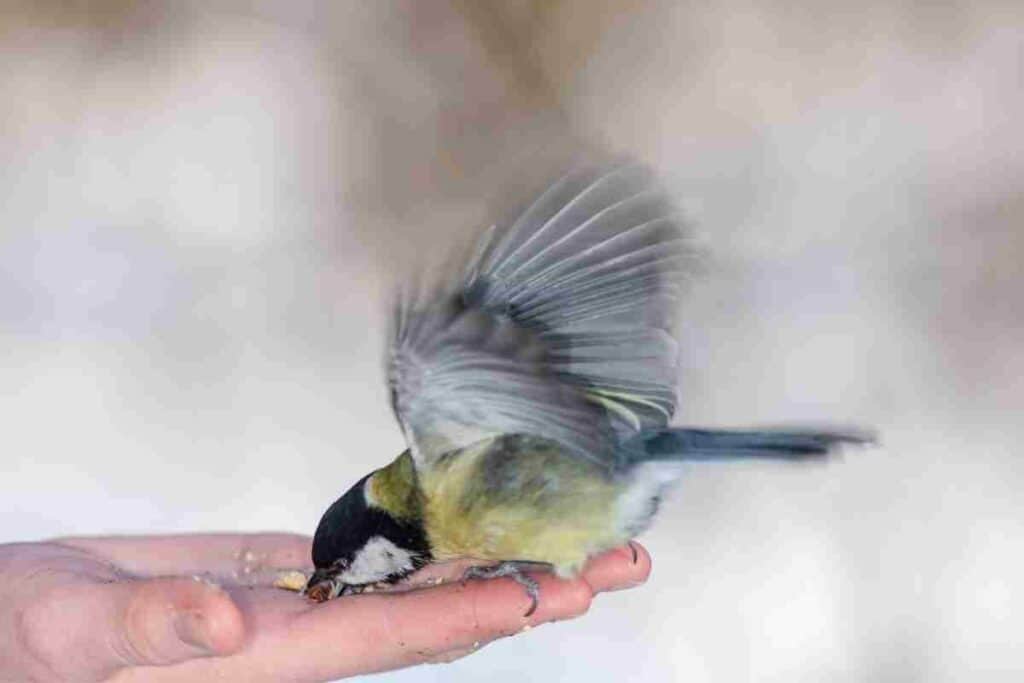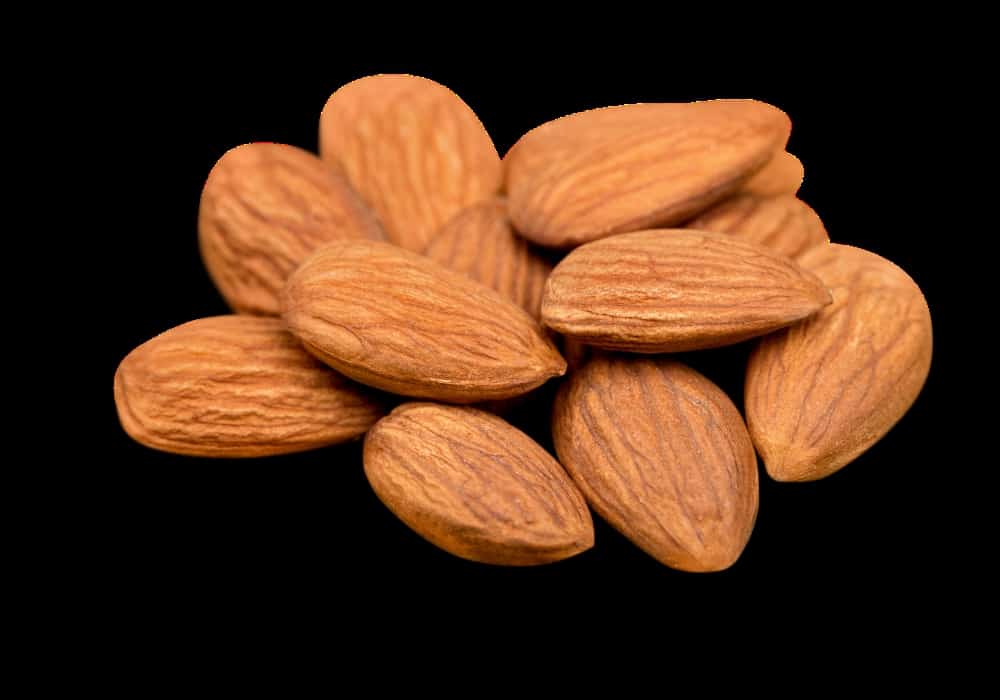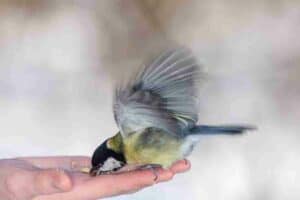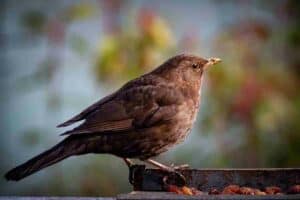Wild birds consume and enjoy a wide range of nuts and seeds including almonds. Almonds are the edible seeds of the Prunus dulcis tree, also known as the almond tree.
Wild birds can and do eat almonds, and they enjoy it. Almonds are a good source of fat that helps keep them healthy.
Being a high-calorie diet, they supply birds with enough energy for their daily tasks.
Almonds are also made up of trace elements and minerals that birds require as a healthy diet. That is why they are considered one of the healthiest foods birds can consume.
Nonetheless, flavored and salted almonds are toxic to wild birds.

Table of Contents
How Do Almonds Benefit Wild Birds?
Almonds are a huge plus for the bird, and they will help them stay healthy. Almonds are beneficial to birds and should be a regular part of their diet.
Here are some of the nutrients wild birds benefit from almond seeds:
Fiber
Wild birds require fiber regularly to avoid constipation. Almonds are a great source of fiber that helps to enhance a bird’s digestive tract as a whole. In particular, if a bird eats 20 almonds, it will gain 3.5 grams of fiber.
This implies the body will have more energy, making it simpler to metabolize other meals over the day.
Protein
Protein is necessary for proper muscle, skin, organ, and bone development. It aids in wound healing, immune system support, blood creation, and hormone synthesis.
It can help in healing wounded birds’ tissues, offer energy to sustain wild birds’ activities, and encourage feather development.
Phosphorous
Phosphorus plays a critical role in cellular metabolism, as a part of the energy currency of the cell, in cellular regulatory mechanisms, and in bone.
Nonetheless, because phosphorus is abundant in almonds, you should not overfeed it because it inhibits calcium absorption.
Vitamin E
Vitamin E is a fat-soluble vitamin that interacts with numerous other vital nutrients in the body. Vitamin E aids in the maintenance of the health of the bird’s cells.
It is also beneficial to wild birds since it aids in immune support and can minimize the impact of pressure on your bird’s health.
Do Wild Birds Like Eating Almonds?
Almonds are natural, healthy, and energy-rich. They have several advantages, and birds, indeed, enjoy eating almonds.
Many birds like Woodpeckers, chickadees, nuthatches, parrots, jays, doves, and other birds enjoy eating almonds. These birds are habituated to the food source and are well-adapted to scavenge for almonds. Some even store them to be eaten during winter.

Birds that love to eat almonds tend to have a larger, sturdier beak that can crack tough shells and pick out the nourishing nut contents. However, even smaller birds may dine on almonds.
Some birds, particularly corvids, will even artistically drop almond nuts onto hard surfaces to readily shatter the shells.
Dangers of Almonds to Wild Birds
Almonds are deemed safe to feed to birds, although, like with other meals, they should only be consumed in reasonable amounts. The amount of almonds a bird can eat is primarily determined by its size.
Smaller birds require fewer almonds than larger birds. There’s nothing to worry about if they ate a couple of nuts and aren’t choking or in any other pain.
Cyanide poisoning is a major risk resulting from consuming a lot of almonds. Cyanide poisoning usually results in respiratory distress, convulsions, depression, and sudden death.
As opposed to sweet almonds, bitter almonds have a higher cyanide content than sweet almonds. A handful is all it takes to kill a wild bird. So, be aware of the variety you’re employing.
Roasted or coated almonds are also bad for wild birds as they contain a lot of salt. Salt affects the electrolyte and fluid balance which can be harmful to most birds.
Additionally, artificially flavored almonds are equally bad for wild birds since they may include toxic components.
How Wild Birds Feed On Almonds
When feeding almonds to these birds, make sure the shell is removed. Not halfway removed or half shelled; entirely removed and discarded.
Many almonds sold in stores or supermarkets do not come in shells, but if they do, you will have to go through the trouble of extracting the shells.
However, some wild birds have already adapted to opening shells.
You can also choose to roast the almonds to improve their flavor and give them a crispy texture. Cook them using dry heat, which cooks the almonds uniformly on both sides.
However, do not add any salt or flavoring.
A peanut bird feeder is always the best option when it comes to putting out almonds for wild birds.
Almonds are much larger than your normal seed mix; therefore, a standard seed feeder will not suffice.
You may acquire squirrel-safe peanut bird feeders if you’re concerned about attracting other animals to your yard, such as squirrels.
This allows wild birds to access their food while keeping troublesome squirrels away.
If you want to feed wild birds almond butter, the best alternative is to provide them with organic and natural almond butter. Also, look for almond butter with the fewest, or even no, preservatives.
Final Thoughts
Almonds contain a lot of protein, vitamins, and minerals, making them a healthier snack for wild birds. The wild birds should be fed almonds in moderation according to their sizes.
However, some almonds can be deadly for birds particularly those that contain salt and other artificial flavorings.










